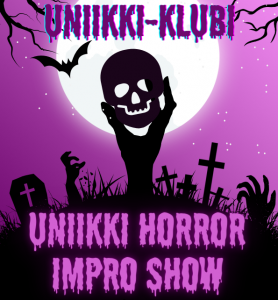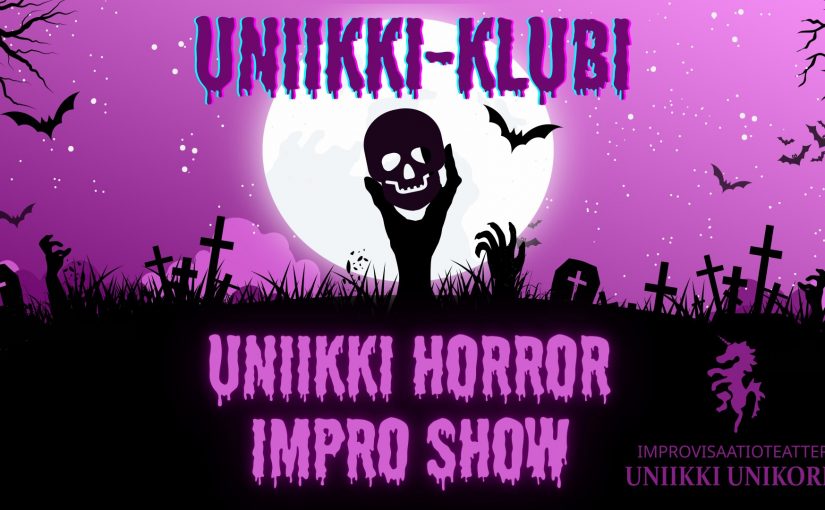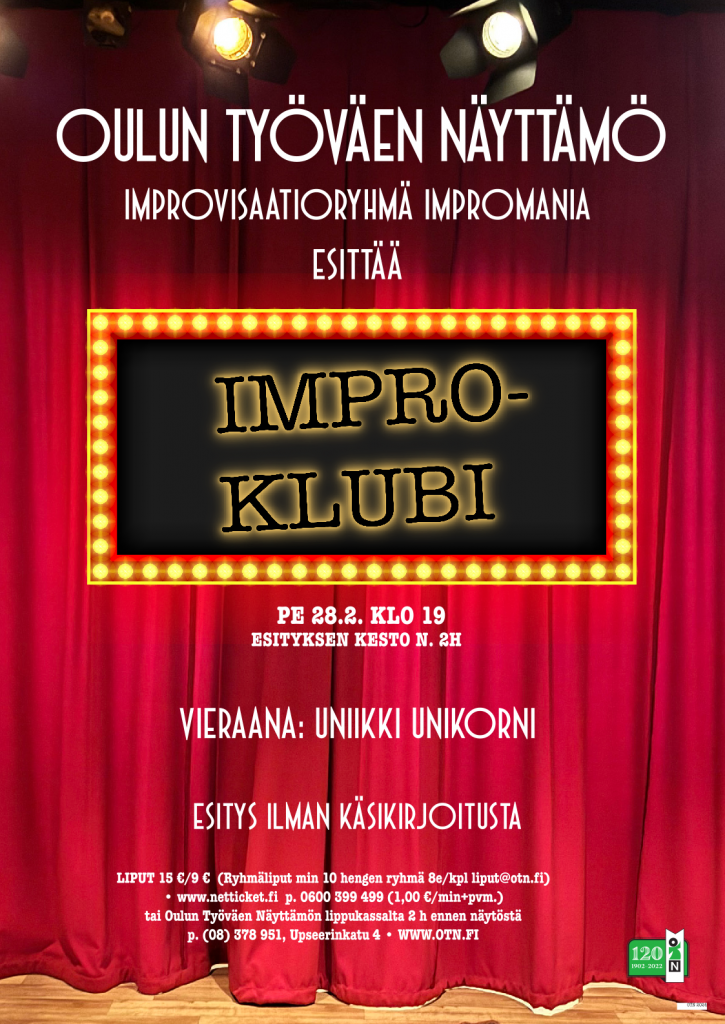Tervetuloa LA 1.11.2025 Pop-Up Näyttämö Klonkkaan katsomaan improvisaatioteatteri Uniikki Unikornin Halloween-klubiesitystä!
Uniikki Horror Impro Show yhdistelee kekseliäästi improvisaation lyhyen muodon tekniikoita, tunnetuimpia kauhutrooppeja ja lautapeli-mekaniikkaa. Kuka hidastaa muita liikaa? Kenelle laitetaan kapuloita rattaisiin? Kuka selviää ulos kauhujen talosta suurin piirtein vahingoittumattomana? Sen päättää yleisö.
Tämä vain yhden illan pyörivä Halloween-spesiaali on täysin ainutlaatuinen kokemus, joka ei varmasti jätä kylmäksi. Illan aikana nälkäiset yksisarvisemme pääsevät iskemään hampaansa myös hieman hyytävämpiin aiheisiin, mutta pääpaino on edelleen ilottelussa.
Esityksen estradina toimii Pop-Up Näyttämö Klonkka, intiimi kulttuuritila, jossa yleisö pääsee seuraamaan hyvin läheltä, kuinka työryhmä kuoriutuu käärinliinoistaan.
Lipun hinta ennakkoon on 15/10 euroa + käsittelymaksu Ticketmasterissa ja ovella tuntia ennen esitystä (vain korttimaksu).
Esityksessä on väliaika, kesto on väliaikoineen noin 90 minuuttia.
Paikka: Pop Up Näyttämö Klonkka, Hallituskatu 20, Oulu
Huom. Esitystilassa on anniskeluoikeudet ja se on K-18.
Tilaan ei ole esteetöntä kulkua, joten pyydämme tarvittaessa olemaan yhteydessä ennakkoon niin voimme avustaa tilaan pääsyssä. Kirjoita siinä tapauksessa info@uniikkiunikorni.fi ja akseliklonk@gmail.com.
Maksut Klonkassa vain kortilla.

TYÖRYHMÄ
Ohjaus: Teemu Meriläinen
Tuotanto: Teemu Meriläinen
Livemusiikki: Tuukka Kivimäki
Valot: Seppo Rajaniemi
Näyttelijät:
Päivi Lahdelma | Suvi Lindholm | Teemu Meriläinen |
Pinja Suomela | Antti Toijonen
Lavastus, puvustus, tarpeisto, markkinointi: työryhmä
Lämpimästi tervetuloa luomaan kanssamme hyytävän hauska ilta!




